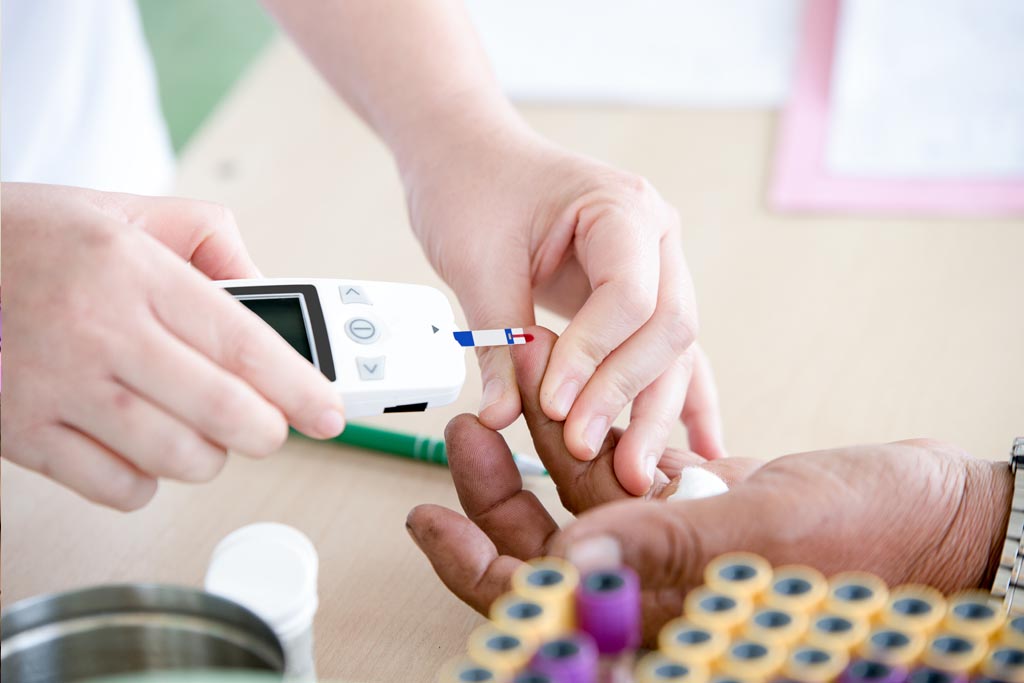Service is Our Passion, Excellence is Our Promise

Diabetes is the #1 cause of kidney failure. In fact, approximately 40 percent of people with diabetes will develop chronic kidney disease.
Besides balancing chemicals in your body, controlling blood pressure and keeping bones healthy, your kidneys clean waste and extra fluid from your blood. The filters in your kidneys are full of tiny blood vessels (called glomeruli) and high blood sugar can harm these glomeruli, which causes diabetic kidney disease. Once the kidneys are harmed like this, they cannot be fixed, and if not treated early, can lead to kidney failure.
Unfortunately, noticeable symptoms do not appear until after kidney disease has already progressed, so you will not be able to feel if diabetes has harmed your kidneys. The only way to know is to be tested, and be sure to test regularly because early detection can slow the progression of the disease. Your doctor can perform these simple tests to check how well your kidneys are functioning.
The good news is that diabetic kidney disease does not happen quickly, which means you can take steps to protect your kidneys! Even if your kidneys are already damaged, you can control your diabetes to help keep them from getting worse.
The steps to prevent diabetic kidney disease are the same steps needed to slow diabetic kidney disease.
It can be difficult on one’s own to handle the many aspects of diabetes management and possible lifestyle changes to keep kidneys as healthy as possible. A qualified personal home care agency such as Heart, Body & Mind Home Care develops private and personalized in-home care plans that help empower people to enhance their health and ensure a vibrant quality of life at home. Contact Heart, Body & Mind Home Care for more information on the ways in-home care can help effectively manage diabetes and kidney care.
President of Heart, Body, & Mind Home Care
Heart Body & Mind Home Care is committed to the principle that it takes more than just effort to provide care to another human being – it takes heart. Our hearts are in all that we do. If you are interested in learning more about our compassionate home care and wellness services in Southwest Florida, including
Please contact us at (866) 488-1485.
Contact Us Today!
We Accept Most Long-Term Care Insurance. Call to speak with a Senior Care Advisor to learn about your policy benefits.